It looks like you're using an Ad Blocker.
Please white-list or disable AboveTopSecret.com in your ad-blocking tool.
Thank you.
Some features of ATS will be disabled while you continue to use an ad-blocker.
10
share:
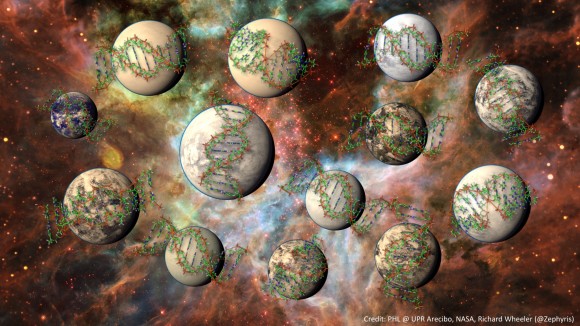
Back in December of last year I gave you all a head's up about the early process of this right here on ATS: Now YOU can LEGITIMATELY name a planet!
Here is where you can sign up: NameExoWorlds.org
Now comes the following story:
You Are Now Officially Invited to Nominate Names for Exoplanets
The International Astronomical Union (IAU), which oversees planetary nomenclature, today invited the public to submit and vote on names for recently discovered exoplanets and their parent stars. Anyone wanting to see a planet named "Gallifrey" or "Waist-Deep Cats" – today is the day you've been waiting for.
Here is the official announcement from the IAU which as noted, governs the naming schemes of all heavenly bodies.
For the first time, in response to the public's increased interest in being part of discoveries in astronomy, the International Astronomical Union (IAU) is organizing a worldwide contest to give popular names to selected exoplanets along with their host stars. The proposed names will be submitted by astronomy clubs and non-profit organisations interested in astronomy, and votes will be cast by the public from across the world through the web platform NameExoWorlds.
This platform is under development by the IAU in association with Zooniverse. The intention is that millions of people worldwide will be able to take part in the vote. Once the votes are counted, the winning names will be officially sanctioned by the IAU, allowing them to be used freely in parallel with the existing scientific nomenclature, with due credit to the clubs or organizations that proposed them.
...The NameExoWorlds contest aims at crowdsourcing the process by which public names will be given to a large sample of well-studied, confirmed exoplanets and their host stars, referred to as ExoWorlds. The NameExoWorlds vote is conceived as a global, cross-cultural, educational, and above all ambitious and challenging contest, both for the IAU–Zooniverse partnership, and for the public. The main steps of the contest are the following [2]:
A list of 305 well-characterized exoplanets, discovered prior to 31 December 2008 [3], has been selected for naming by the IAU Exoplanets for the Public Working Group and is being published today on the www.NameExoWorlds.orgwebsite. These exoplanets belong to 260 exoplanetary systems comprising one to five members, in addition to their host star.
In parallel, an IAU Directory for World Astronomy website is being prepared (directory.iau.org). This site will open in September 2014 and astronomy clubs and non-profit organisations interested in naming these exoplanets will be invited to register. The IAU will have the capability to handle the registration of thousands of such groups.
In October 2014, these clubs or organizations will be asked to vote for the 20–30 exoworlds they wish to name out of the list provided by the IAU. The actual number will depend on how many groups have registered.
From December 2014, these clubs or organizations will be able to send in proposals for the names of members and host stars of these selected ExoWorlds, based on the rules in the IAU Exoplanet Naming Theme, together with a detailed supporting argument for their choice. Each group will be allowed to name only one exoworld. More details on this stage will be given later.
From March 2015, the general public will be able to vote to rank the proposed exoworld names. The IAU and Zooniverse will be ready to handle a million votes or more worldwide.
Starting from July 2015, the IAU, via its Public Naming of Planets and Planetary Satellites Working Group, will oversee the final stages of the contest, and will validate the winning names from the vote.
The results will be announced at a special public ceremony held during the IAU XXIX General Assembly in Honolulu, USA, 3–14 August 2015.
The naming process will take place on www.NameExoWorlds.org website, where we encourage volunteers to translate the content into different languages in order to offer everyone the opportunity to take part in the contest (volunteer translators may email: [email protected]).
Read more at the IAU
Choose wisely, these names will be used long after you, your kids and their kids are gone and quite possibly may be one of the first worlds a future interstellar probe or mission visits, particularly the nearby, habitable zone worlds.
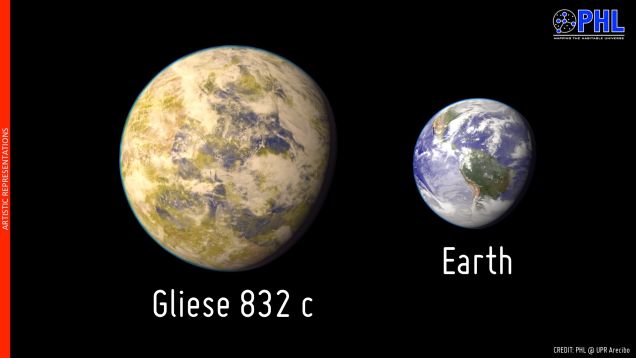
Gliese 832 c is thought to possibly be an Earthlike world just 16 light-years away.
So why did the IAU, an organization of scientists who mostly are ok with names like Kepler-186 f, HD 40307 g, Gliese 832 c, Tau Ceti e, and OGLE-2005-BLG-390Lb turn to the public after originally dismissing the idea of the public naming these worlds?
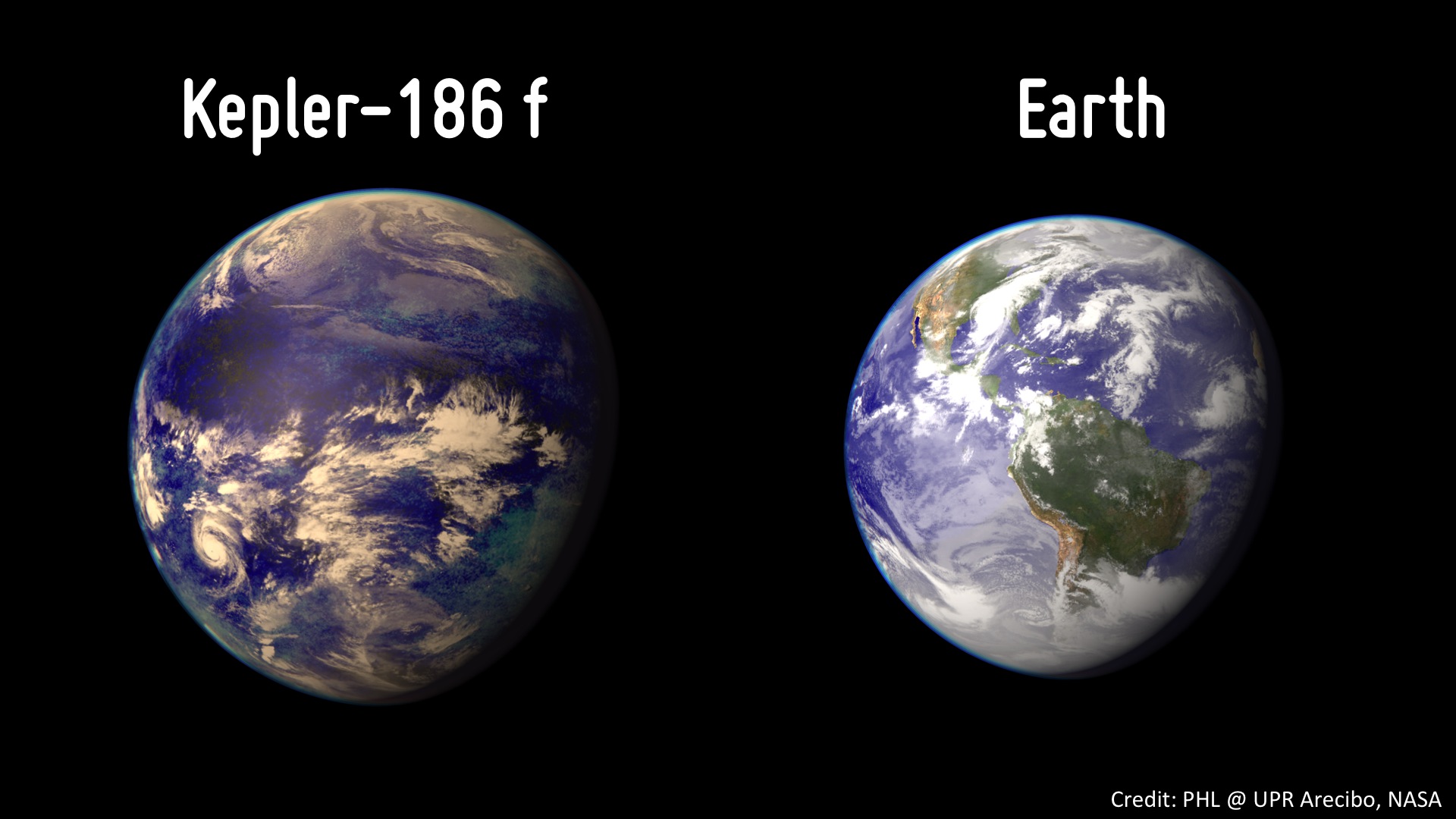
Kepler 186 f - Earth's distant cousin
Because they realized that we're getting closer to the day when many Earth sized worlds near to our solar system will be photographed and perhaps mapped:
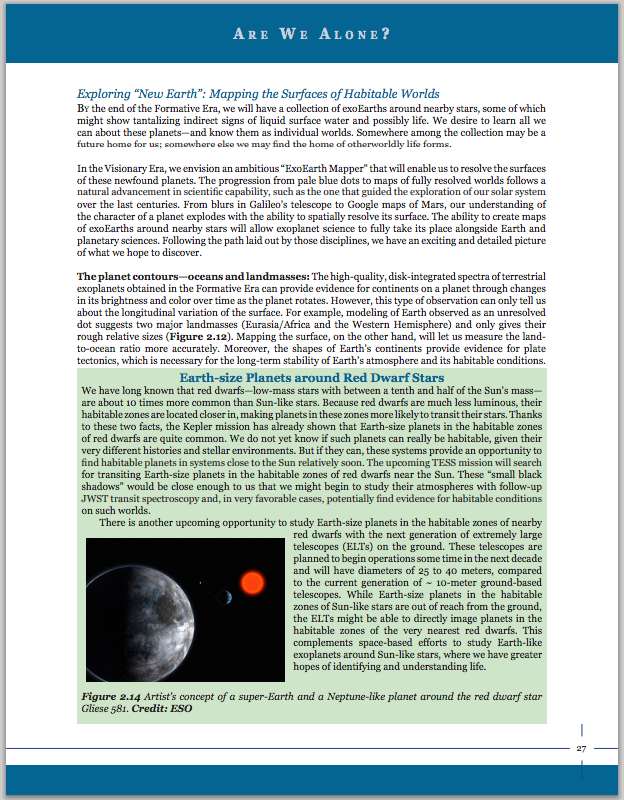
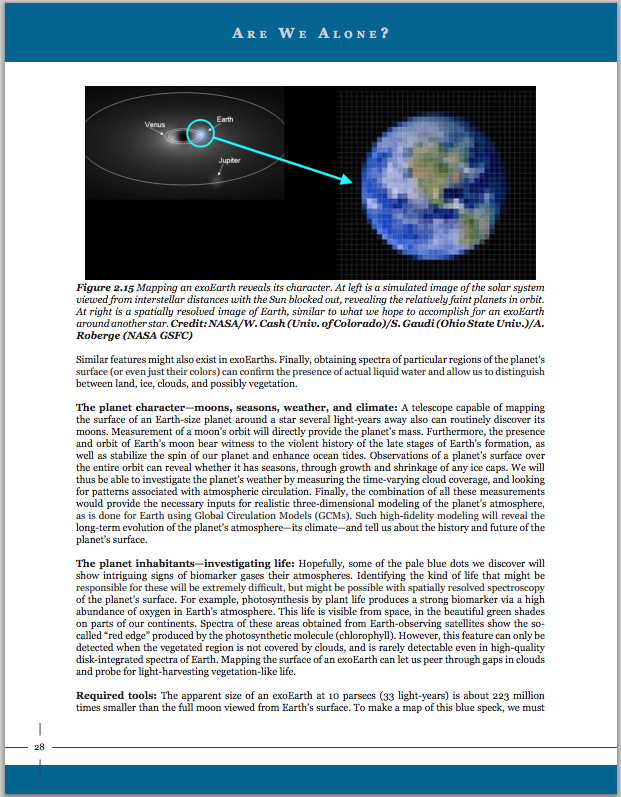
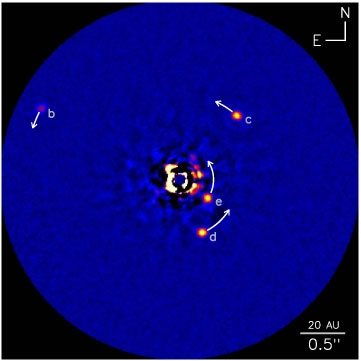
We've already begun to photograph other planetary systems in the infrared
Also scientists are not always the best at naming things. Usually we refer to Greek, Roman or Egyptian mythology but those have all become picked clean of names so the poets, artists, philosophers, truck drivers, plumbers, and teachers of the world should also have equal crack at it
edit on 9-7-2014 by JadeStar because: (no reason given)
We cant just name them...! what about the people living there? Would you like to know that some people just named "fakupoopoo" to our planet without
even caring about what we, the natives, name it?
I dont agree with that initiative...
I dont agree with that initiative...
originally posted by: FraternitasSaturni
We cant just name them...! what about the people living there? Would you like to know that some people just named "fakupoopoo" to our planet without even caring about what we, the natives, name it?
I dont agree with that initiative...
To be honest, most of these planets are probably uninhabited. And if one or two should have some sort of sentient life, what would they care? It is not like we're going to go there for a visit any time soon.
And chances are, Earth is called something else by any one on those other planets because beyond about 50 light years our radio/TV/satellite communications signals would not have arrived there yet so they'd have no idea what we call the Earth. (Assuming they had large enough radio telescopes to receive and decode anything more than a very, very, weak carrier signal).
So... Perhaps, before we worry about the what the other life out there might think it probably makes sense to actually find it first. Having common names for exoplanets will help everyone from kids learning about them in K-12 schools to news media to sci-fi authors to people whose mind might confuse Gliese 667 C c with Gliese 832 c. So why not name them?
Chances are the aliens whose feelings you are worried about already know our planet at least has photosynthetic (plant) life.
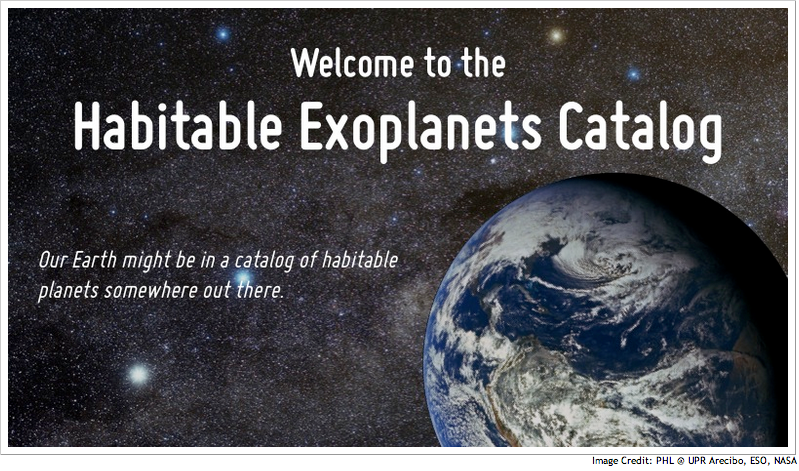
See also: ATS: An Alien View of Earth - How Alien Astronomers Would Know the Earth is Habitable
I wonder if you could use established Intellectual Properties as the names?
originally posted by: igor_ats
I wonder if you could use established Intellectual Properties as the names?
That depends.
Some of those names like Prometheus or Pandora while names in recent films are names which are in the public domain since they come from mythology. (In fact both are current names of moons of the planet Saturn - A fact that might rule them out of IAU consideration.).
Names like Vulcan,Arrakis or Kerbin would be the intellectual property of Paramount Pictures, Universal Pictures or Squad gaming respectively since they invented them and were not in use before their creative works.
Incidentally a name like Tyree (from Star Trek) or Tatooine (from Star Wars) would be in a grey area because Tyree is just Tiree spelled differently, Tiree is an island of Scotland.
Likewise Tatooine is just Tataouine spelled differently. Tataouine is a part of Tunisia, where incidentally that part of Star Wars was filmed.
BTW: Tatooine and Tataouine are proposed names for the planet now known as Kepler 16B which orbits two stars. One a yellow-orange star like our Sun and the other a red dwarf.
Sound familiar?
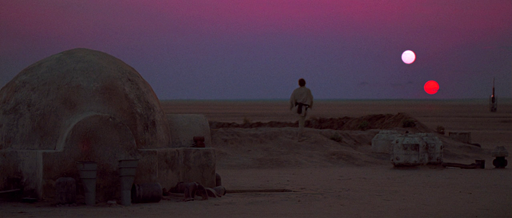
edit on 10-7-2014 by JadeStar because: (no reason given)
a reply to: JadeStar
After all that extensive explanation about where Tyree is from and where Tatooine is from and how kepler 16b orbits 2 stars...
If it sounds familiar? Is that a rhetorical question? lol
You cant ask if something "sounds familiar" after an explanation like that! lol
After all that extensive explanation about where Tyree is from and where Tatooine is from and how kepler 16b orbits 2 stars...
If it sounds familiar? Is that a rhetorical question? lol
You cant ask if something "sounds familiar" after an explanation like that! lol
Again, sorry for my "new topic". This wasn't intended and now i see, that the OP is pretty good summed up about the whole topic.
My question on it is: How do we deal with names of planets in general in the future? As already stated within the OP, old mythological names (although they are numerous) will soon be all-taken.
On the other side, the classification system, as we have it today isn't very "sexy" and hard to memorize.
I think giving names to some of the first exo-planets we found won't solve this problem at all. We will have to develop a new system instead, i think.
What could this be?
I have no clue but let's see what the first suggestions will be like.
My question on it is: How do we deal with names of planets in general in the future? As already stated within the OP, old mythological names (although they are numerous) will soon be all-taken.
On the other side, the classification system, as we have it today isn't very "sexy" and hard to memorize.
I think giving names to some of the first exo-planets we found won't solve this problem at all. We will have to develop a new system instead, i think.
What could this be?
I have no clue but let's see what the first suggestions will be like.
edit on 17-7-2014 by Tichy because: notations
originally posted by: Tichy
Again, sorry for my "new topic". This wasn't intended and now i see, that the OP is pretty good summed up about the whole topic.
My question on it is: How do we deal with names of planets in general in the future? As already stated within the OP, old mythological names (although they are numerous) will soon be all-taken.
On the other side, the classification system, as we have it today isn't very "sexy" and hard to memorize.
I think giving names to some of the first exo-planets we found won't solve this problem at all. We will have to develop a new system instead, i think.
What could this be?
I have no clue but let's see what the first suggestions will be like.
Good question. I am not convinced the current system is broken but I'm open to suggestions.
Really, naming the planets makes a lot of sense if you just want a sexy name.
If you want a name which contains information of scientific value then the current system is fine.
Oh, and no problem on the duplicate thread.
edit on 18-7-2014 by JadeStar because: (no reason given)
If you want a name which contains information of scientific value then the current system is fine.
I wouldn't agree to this. At the moment exoplanets are named after the catalogue-number-name of their host-star-system. Of course you can proof me wrong here, if it's the case.
But substantial information isn't given. A scientific name should contain something more valuable about the object itself like orbital parameters, atmosphere, possibilty of liqued water and so on.
HD 149026 b for example tells me nothing more then it belongs to a star-system, that was found during the Hipparcos survey.
A "sexy" name of course is something different .
As for the more scientific nature we don't have much knowledge of all those foreign celestial bodys yet to name them in an appropriate way of course but some time later we will need some new system, i think.
originally posted by: Tichy
If you want a name which contains information of scientific value then the current system is fine.
I wouldn't agree to this. At the moment exoplanets are named after the catalogue-number-name of their host-star-system. Of course you can proof me wrong here, if it's the case.
But substantial information isn't given. A scientific name should contain something more valuable about the object itself like orbital parameters, atmosphere, possibilty of liqued water and so on.
When we know all of those things for the majority of exoplanets then the naming system will be changed to reflect that.
Right now we don't even know all of the planets in a system which is why they use b, c, d, e in order of discovery rather than 1,2,3,4 or I, II, III, IV as in sci-fi in order of distance from the central star.
This is a science in its infancy, we've barely begun direct imaging exo-planets and learning about their atmospheres and for the vast majority of exoplanets we know either their mass or their radius but not both (which would allow us to learn their density and something about their composition).
So I'd just say be patient, over the next 30 years if we build something like the ATLAST telescope or the Terrestrial Planet FInder or Darwin then we'll be able to know enough that the current system will be changed to include more of that detailed information.
As for the more scientific nature we don't have much knowledge of all those foreign celestial bodys yet to name them in an appropriate way of course but some time later we will need some new system, i think.
Bingo!
new topics
-
New York Governor signs Climate Law that Fines Fossil Fuel Companies
US Political Madness: 3 hours ago -
Meta Llama local AI system is scary good
Science & Technology: 9 hours ago -
This is why ALL illegals who live in the US must go
Social Issues and Civil Unrest: 10 hours ago
top topics
-
This is why ALL illegals who live in the US must go
Social Issues and Civil Unrest: 10 hours ago, 17 flags -
New York Governor signs Climate Law that Fines Fossil Fuel Companies
US Political Madness: 3 hours ago, 12 flags -
Former ‘GMA Producer’ Sues NPR-Legacy Media Exposed
Propaganda Mill: 14 hours ago, 9 flags -
Happy Hanukkah…
General Chit Chat: 15 hours ago, 8 flags -
UK Borders are NOT Secure!
Social Issues and Civil Unrest: 12 hours ago, 6 flags -
Meta Llama local AI system is scary good
Science & Technology: 9 hours ago, 6 flags -
New Footage - Randy Rhoads 1979 LIVE Guitar Solo Footage at the Whisky - Pro Shot
Music: 14 hours ago, 5 flags
active topics
-
The Mystery Drones and Government Lies --- Master Thread
Political Conspiracies • 153 • : WeMustCare -
Statements of Intent from Incoming Trump Administration Members - 2025 to 2029.
2024 Elections • 56 • : fringeofthefringe -
Meta Llama local AI system is scary good
Science & Technology • 23 • : BingoMcGoof -
This is why ALL illegals who live in the US must go
Social Issues and Civil Unrest • 22 • : fringeofthefringe -
Putin Compares Himself to Jesus Promoting Traditional Values Against the Satanic West
Mainstream News • 77 • : Dalamax -
Former ‘GMA Producer’ Sues NPR-Legacy Media Exposed
Propaganda Mill • 5 • : WeMustCare -
New York Governor signs Climate Law that Fines Fossil Fuel Companies
US Political Madness • 10 • : CosmicFocus -
Happy Hanukkah…
General Chit Chat • 22 • : AlroyFarms -
FAA Investigates Christmas Drone Show Gone Wrong in Orlando, FL 12/2024
Other Current Events • 13 • : Astrocometus -
DefCon Teetering on Escalation
World War Three • 53 • : annonentity
10
